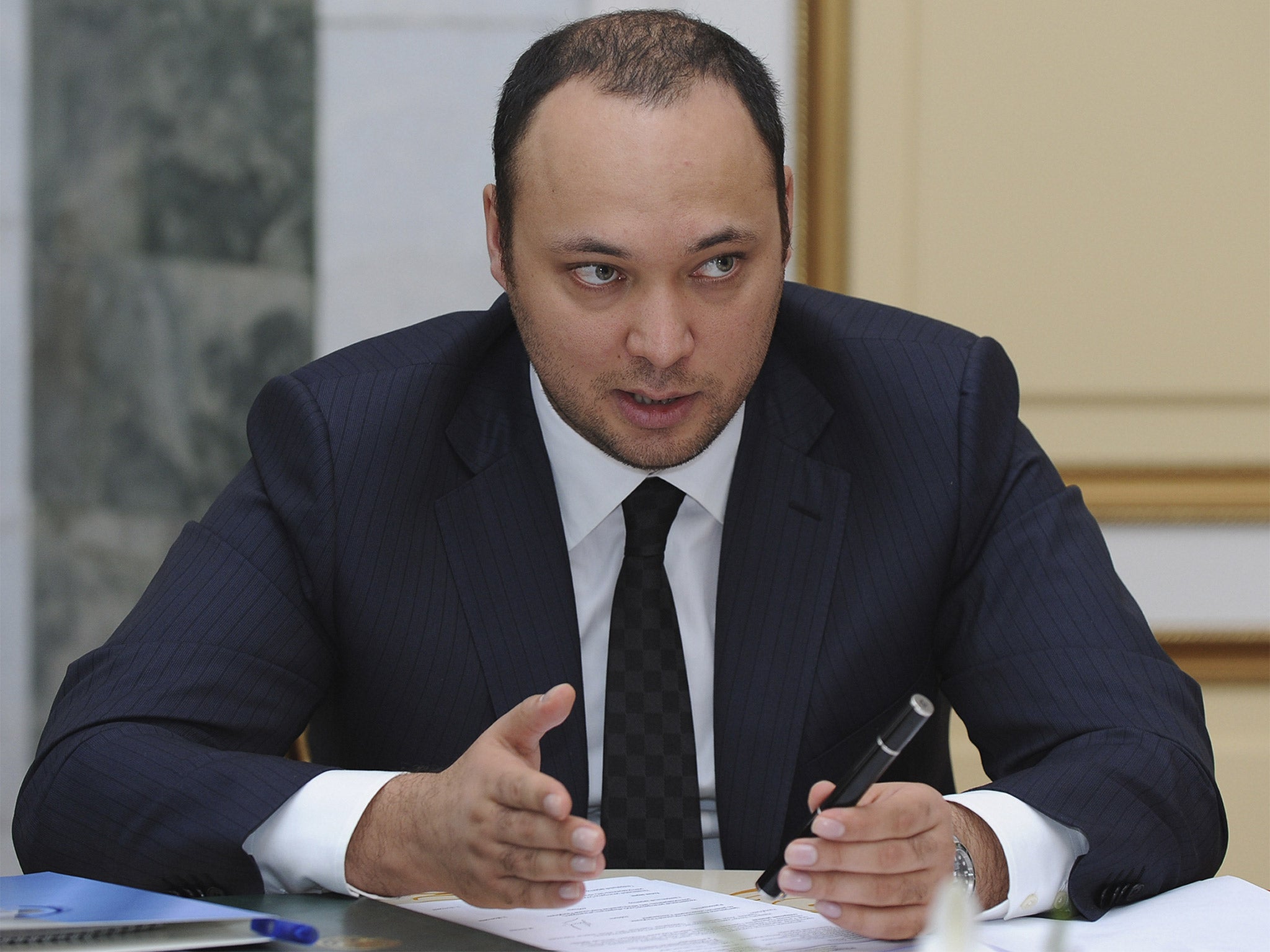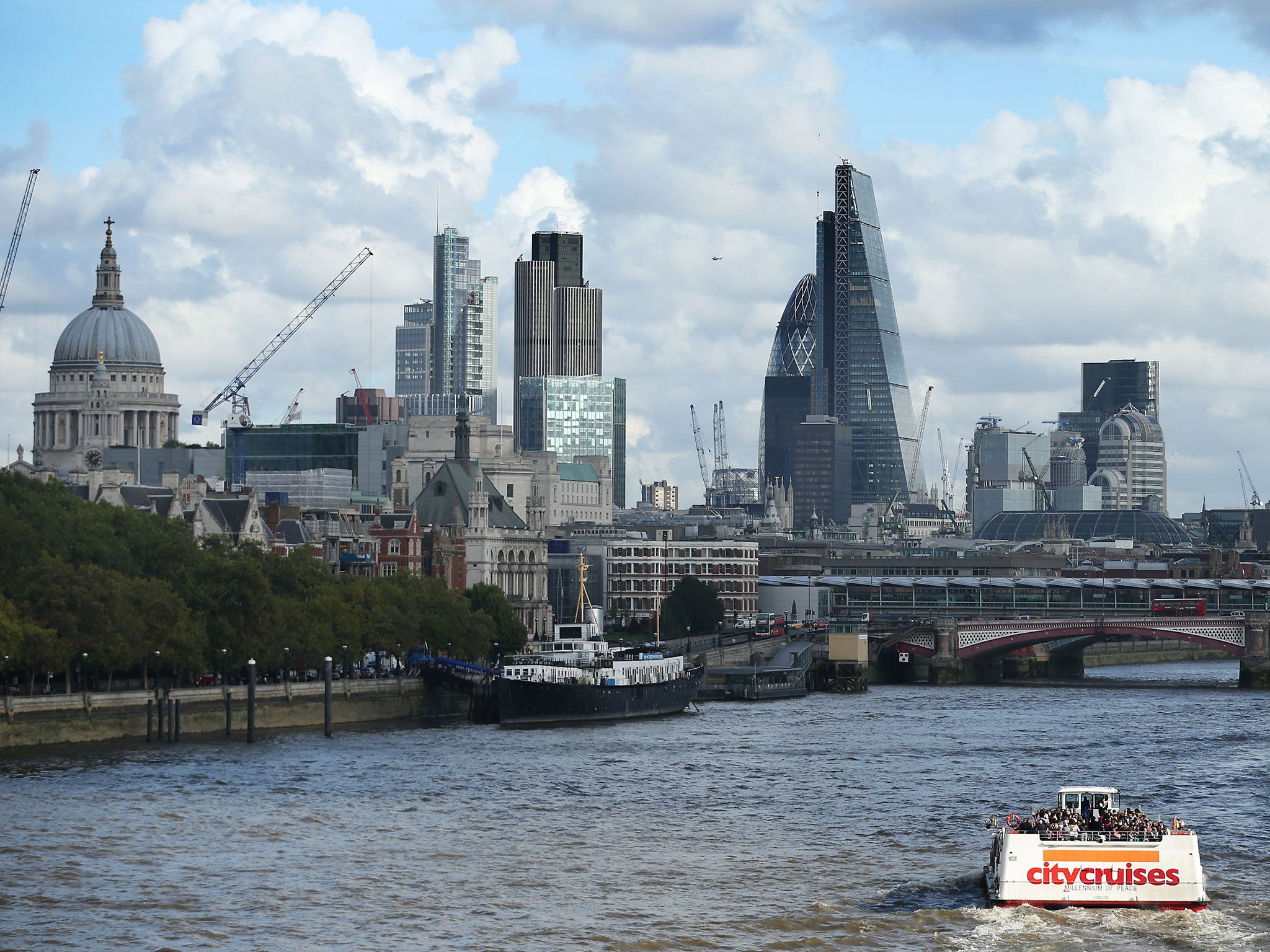London property used for money laundering: the curious case of a despot's son
As writs fly over an alleged murder attempt, campaigners are also questioning UK property laws. Jim Armitage reports on a Kyrgyz millionaire now living in London

Your support helps us to tell the story
From reproductive rights to climate change to Big Tech, The Independent is on the ground when the story is developing. Whether it's investigating the financials of Elon Musk's pro-Trump PAC or producing our latest documentary, 'The A Word', which shines a light on the American women fighting for reproductive rights, we know how important it is to parse out the facts from the messaging.
At such a critical moment in US history, we need reporters on the ground. Your donation allows us to keep sending journalists to speak to both sides of the story.
The Independent is trusted by Americans across the entire political spectrum. And unlike many other quality news outlets, we choose not to lock Americans out of our reporting and analysis with paywalls. We believe quality journalism should be available to everyone, paid for by those who can afford it.
Your support makes all the difference.London is famed for providing a safe haven for foreign dissidents and refugees. It’s a hard-earned reputation going back to the French revolution and beyond.
Then, as now, the super-rich who have fallen foul with their governments were among the influx. And then, as now, their reputations were not always immaculate.
But it has surely not often been the case that a millionaire alleged to have ordered an Englishman’s murder has ended up being exiled to a British mansion less than 60 miles away from the alleged intended victim’s home.
However, according to allegations in a High Court case coming up, that’s what has happened in the curious case of Maksim Bakiyev.
Mr Bakiyev, son of the ousted president of Kyrgyzstan, lives in a £3.5m mansion in the London suburbs. He lives here despite having been found guilty of attempted murder and corruption in his home country. He denies the claims and says they, and the prosecutions, were politically motivated.
Not far away from him, in Oxfordshire, lives Sean Daley, a businessman who claims Mr Bakiyev ordered a hit on him, in the Kyrgyz capital of Bishkek, while he was helping a British company’s bid to win a gold mining licence in Kyrgyzstan. Mr Daley claims that while he was helping the British firm, he was critical of a rival bid partly backed by the oligarch Boris Berezovsky and Mr Bakiyev.
During the negotiation period, Mr Daley was shot and seriously wounded on his way home after spending the evening at a restaurant with friends. Shortly afterwards the mining licence was awarded to the rival bidder, according to court rulings in Kyrgyzstan.
That was in 2006.
The president, Maksim’s father Kurmanbek, was ousted in 2010, fleeing to nearby Belarus with other members of the family. Maksim was already out of the country, but flew into London in his private jet, landing at Farnborough airport where he applied for asylum. To the great consternation of anti-corruption NGO Global Witness, he now lives in a £3.5m London pad owned by a company in the secretive haven of Belize.
In absentia, last year a court in Bishkek found Mr Bakiyev guilty of the murder attempt – a judgment and trial Mr Bakiyev does not recognise.
But using that judgment, Mr Daley is now suing Mr Bakiyev for personal injury in the High Court in London.
Mr Bakiyev’s defence documents to the court dismiss the claim and say any conviction in Kyrgyzstan would have been “wrongfully secured” and “without due process of law.” They also describe Mr Daley’s alleged lack of evidence as “embarrassing.”
But while lawyers for the two sides prepare for a court hearing in June, Global Witness has been focusing on Mr Bakiyev’s large mansion in the London Borough of Reigate and Banstead, and called for a full investigation by the UK authorities into where the funds came from for its purchase.
The NGO has previously linked Mr Bakiyev to what it claims are suspicious financial transactions, which the present Kyrgyz government believe are linked to the theft of state money. Mr Bakiyev has denied any such transactions or stealing, saying the allegations are politically motivated.
Global Witness says that the mansion where he lives now was bought in the name of a company registered in Belize, where the true owners of companies are allowed to hide their identities.
The Belize company, Limium Partners Limited, was registered 15 days after Mr Bakiyev arrived in London in June 2010, Global Witness says. Limium bought the house two months later.

While it is not possible to find out who owns the Belize company, Global Witness says it is known that the agent who registered it also registered several companies that the Kyrgyz authorities state have links to Mr Bakiyev.
Mr Bakiyev’s legal team did not respond to requests for comment on Mr Daley’s High Court case or corruption allegations last week.
The London law firm which conducted the property transaction for Limium also did not respond.
Global Witness’s Chido Dunn criticised Britain’s rules allowing the anonymity of property owners. She said: “Our property market is serving as a money-laundering vehicle for the world’s criminal and corrupt. But we can stop this happening.
“Real estate agents should be made to identify the real buyers of properties and the corruption risks they pose, rather than just the paper companies they hide behind.”
She added that the Land Registry should collect and publish the names of the real owners of companies that own property here.
Estate agents argue that it would be too onerous on them to have to carry out checks on both sales and purchases and that’s an argument that has been heeded so far by government.
In its defence, the Government has turned its sights on those who own properties through offshore companies, but primarily by charging them extra tax, rather than forcing them to reveal themselves.
Anti-corruption agencies say that, until such restrictions are imposed, London’s exclusive properties will continue to be used as safe havens to park dubious cash.
But with so many vested interests, not to mention the taxman, making so much money from the status quo, the question remains about whether there is a will to change it.

Just capital: The housing problem
A report last month by Transparency International showed that some 36,342 properties in London have been bought through hidden companies in offshore havens. While a majority of those will have been kept secret for legitimate privacy purposes, vast numbers are thought to have been bought anonymously, to hide stolen money.
The classic technique for laundering money through property is to first pass it multiple times through offshore companies in multiple jurisdictions. This is a process known as “layering”. Once this has been done so often that the funds are almost impossible to trace, a company is set up in another offshore location – usually a British dependency such as the British Virgin Islands – to buy an expensive property in London. The capital’s prime property market is used because prices are so high that you can launder many millions of pounds at a time.
Join our commenting forum
Join thought-provoking conversations, follow other Independent readers and see their replies
Comments